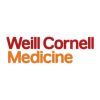1. Understanding Cholesterol: What You Need to Know
Cholesterol is a fatty substance found in every cell of your body. While it plays essential roles in building cell membranes and producing certain hormones, high cholesterol levels can lead to significant health issues, particularly heart disease. My personal experience with cholesterol started when I got my health check-up results and noticed my levels were higher than recommended. It was a wake-up call that motivated me to find natural ways to reduce my cholesterol without relying on medications. And I can say, the journey was eye-opening!
1.1. Types of Cholesterol
Cholesterol comes in two forms: low-density lipoprotein (LDL) and high-density lipoprotein (HDL). LDL, often referred to as "bad cholesterol," can build up in the walls of arteries, leading to blockages and increased risk of heart disease. On the other hand, HDL, or "good cholesterol," helps remove LDL from the bloodstream, reducing your risk. Maintaining a balance between these two types is crucial for heart health. In my case, I was focused on lowering my LDL levels and boosting my HDL.
2. Embrace a Heart-Healthy Diet
The first and most impactful step I took in lowering my cholesterol was adjusting my diet. Nutrition plays a crucial role in managing cholesterol, and the changes I made helped me achieve noticeable improvements. I learned that certain foods can actively help lower LDL cholesterol and boost HDL levels, so incorporating these into your daily meals can be a game-changer.
2.1. Include More Soluble Fiber
Soluble fiber is a type of fiber found in plant-based foods like oats, beans, lentils, apples, and carrots. I started adding more of these foods to my diet, and over time, I noticed significant improvements. Soluble fiber binds to cholesterol in the digestive system and helps remove it from the body. By including high-fiber foods, such as oatmeal for breakfast or beans in salads, I not only reduced my cholesterol but also improved my digestion and overall health.
2.2. Increase Healthy Fats
Contrary to popular belief, not all fats are bad. I focused on increasing my intake of healthy fats, especially monounsaturated and polyunsaturated fats. Foods like olive oil, avocado, and nuts became staples in my diet. These healthy fats can lower LDL cholesterol levels and increase HDL cholesterol, promoting heart health. I also made sure to replace trans fats and saturated fats with healthier fat sources, which was a key change in my diet.
3. Physical Activity: A Natural Cholesterol Booster
Exercise has a profound impact on cholesterol levels, and I personally found it to be one of the most effective natural methods. I committed to at least 30 minutes of moderate physical activity most days of the week. Cardiovascular exercises like walking, jogging, cycling, and swimming helped me lower my LDL levels and boost my HDL levels. Regular physical activity also reduces inflammation and helps maintain a healthy weight, which are essential components of cardiovascular health.
3.1. Aerobic Exercise
Aerobic exercises, such as brisk walking or running, are particularly beneficial for cholesterol management. These exercises help to increase the production of HDL, the "good" cholesterol, while also reducing the levels of LDL. I made sure to incorporate activities that I enjoyed, making it easier to stay consistent. Whether it was taking a walk in the park, cycling around my neighborhood, or dancing, these activities not only boosted my mood but also improved my heart health.
3.2. Strength Training
Incorporating strength training into my routine also helped in managing my cholesterol. Lifting weights, bodyweight exercises, or resistance training can help you build muscle mass, which improves metabolism and promotes overall heart health. I included a few strength-training sessions per week, and over time, I saw a positive effect not only on my cholesterol levels but also on my energy and muscle tone.
4. Manage Stress Effectively
Stress can have a detrimental effect on your cholesterol levels, and I realized that managing stress was just as important as diet and exercise. Chronic stress can lead to higher levels of cortisol, a hormone that can raise cholesterol levels, especially LDL. By incorporating stress-relief techniques into my routine, I was able to keep my cholesterol in check while feeling more relaxed and balanced.
4.1. Meditation and Deep Breathing
I started practicing mindfulness and meditation as part of my daily routine. These relaxation techniques helped me reduce stress, lower blood pressure, and improve my overall well-being. Deep breathing exercises, in particular, helped calm my mind and body during stressful moments. I found that just a few minutes of deep breathing or meditation every day significantly reduced the negative impact of stress on my body, including my cholesterol levels.
4.2. Yoga and Stretching
In addition to meditation, yoga became a significant part of my stress-management plan. Yoga not only helps in reducing stress but also promotes physical flexibility and muscle strength. Incorporating gentle yoga stretches into my routine helped me unwind after a long day and improved my ability to manage stress. A calm mind and a relaxed body were essential for maintaining healthy cholesterol levels.
5. Avoid Smoking and Limit Alcohol Consumption
Smoking and excessive alcohol consumption can both contribute to unhealthy cholesterol levels. I made the decision to quit smoking, and it was one of the best choices I made for my heart health. Cigarette smoke damages blood vessels and promotes the build-up of plaque in arteries. Similarly, drinking alcohol in moderation (or not at all) can help keep cholesterol levels in check. I limited my alcohol intake to help my cholesterol remain at healthy levels.
5.1. Benefits of Quitting Smoking
Quitting smoking helped me improve my cardiovascular health almost immediately. Within weeks, I noticed my heart felt stronger, and I had more energy throughout the day. Studies show that quitting smoking helps raise HDL cholesterol levels and improves circulation, which is crucial for reducing cholesterol-related health risks. If you’re looking to lower your cholesterol, quitting smoking is a significant step in the right direction.
5.2. Moderating Alcohol Consumption
Excessive alcohol consumption can increase triglyceride levels, contributing to high cholesterol. I made sure to keep my alcohol intake moderate, limiting myself to one or two drinks per week. This small change made a big difference in my cholesterol levels. Reducing alcohol not only helped me manage my cholesterol but also improved my liver function and overall health.
6. The Importance of Regular Monitoring
Throughout my journey to reduce cholesterol naturally, I learned that regular monitoring was essential. By checking my cholesterol levels regularly, I was able to track my progress and make necessary adjustments to my diet and lifestyle. I made sure to visit my doctor regularly for cholesterol screenings, which gave me the opportunity to measure how well the changes I made were working.
6.1. Working with Your Healthcare Provider
Working closely with my healthcare provider allowed me to create a personalized plan for managing my cholesterol. Regular check-ups, including blood tests to measure cholesterol levels, helped me understand what changes were necessary for further improvement. My doctor also helped me monitor other key health markers, such as blood pressure and blood sugar, which are closely tied to heart health.
7. Conclusion: A Holistic Approach to Cholesterol Control
By combining a healthy diet, regular exercise, stress management, and avoiding harmful habits like smoking and excessive alcohol consumption, I was able to naturally reduce my cholesterol levels. The journey wasn’t always easy, but the positive results were worth the effort. Not only did I feel better overall, but I also knew I was taking control of my health. If you’re looking to reduce your cholesterol, consider adopting these lifestyle changes and work with your healthcare provider to create a plan tailored to your needs. It’s all about making sustainable choices that benefit your heart and well-being for the long run.




















